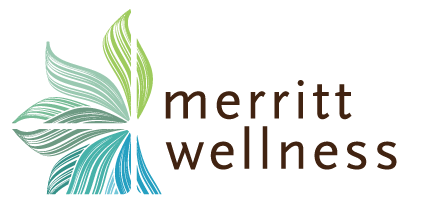This article is going to deal with two sacred cows — whole grains, and vegetarianism. Not in the way of right and wrong, but rather with the realization that, without adequate information, most people are damaging their health completely inadvertently, but quite significantly.
Let’s start with grains. From a blood sugar perspective, grains will cause an insulin reaction, so I recommend that people pay attention to how much they have, measure the grams of carbs, and learn what a serving size is, or at least just limit them. And I’m going to assume that you know that refined grains are a complete waste of time. But the myth is that we HAVE to eat grains. And that we think we can digest them. Let me explain.
Grains, nuts and seeds, just like soy, contain a number of “anti-nutrients” that need to be dealt before they become digestible. Think about a bird eating a seed — the seed is designed to survive the digestive track of the bird, so that it can live to sprout another day. Those protections are also present when you eat those grains, nuts and seeds. Just like soy (and legumes and seeds in general), all grains contain phytic acid in the hull of the seeds, and phytic acid combines with calcium, iron, magnesium, copper, and especially zinc, preventing their absorption in the digestive tract. Other anti-nutrients include enzyme inhibitors (inhibiting trypsin and chymotrypsin) which puts stress on the pancreas and inhibit digestion, tannins which can irritate the system, and gluten and other related difficult-to-digest proteins that can cause digestive problems, and lead to over 40 different diseases. We can also add lectins to the list — sticky molecules on beans, nuts, seeds, grains and potatoes — that also cause nutritional deficiencies, immune reactions, and digestive distress, as they cause an inflammation response in the gut epithelial cells.
Anti-nutrients are there to protect the seed — they prevent sprouting until the time is right. What we forget is that animals that nourish themselves on plants and grains have longer, slower digestive tracts, with some having multiple stomachs for digestion. Those plants, grains and seeds want moisture, warmth, time and slight acidity to sprout, and imitating that is what will allow you to eat grains and legumes, extract the nutrients from them, and not have them cause short and long-term damage. All traditional cultures eating grains either fermented or soaked them. So what should you do to your rice, granola, oats, beans, and your wheat for homemade bread?
Soak your legumes, grains and seeds overnight, in water with a little whey or other acid like lemon. Make sure you don’t eat them raw — cook your grains, even just a little, to reduce the anti-nutrients. Heat alone will not negate these compounds (although the very high heat used to extrude grains to make cereals flakes will damage the nutrients completely and makes the proteins into poisonous compounds) but some heat has to be used. Add a little whey, vinegar, lemon juice, kefir or yogurt to provide the acidity to activate phytases and break down some of the anti-nutrients. For great suggestions on this, read “Nourishing Traditions” by Sally Fallon Morel, who doesn’t just give recipes, but explains why the traditional methods of preparation prevented many of the nutritional problems we see today.
Another “myth” about food is that being vegetarian is healthier than not. I am not, in any way, against vegetarianism from a philosophical point of view — my only qualm with it is that many, if not most, vegetarians, and to a greater extent, vegans, are damaging their health due to a lack of knowledge about nutrition.
Take the grains I just wrote about — vegetarians tend to be the worst offenders in terms of carbohydrate intake (I call them “carbotarians”). The staple of many vegetarian diets is, in all honesty, not vegetables, but are foods like pastas, beans, breads, and grains. If someone is trying to be “healthy”, those might be whole grains, but for most people, it’s a mix at best. I see insulin-resistant vegetarians all the time in my practice, and they got there because their thoughts are that if they’re eating whole grains, it must be OK. Did you know that a serving size of rice is one-third of a cup? Cooked? Do you know anyone who is eating that small of a serving? I don’t. Nor are those grains, nuts and seeds being properly prepared to prevent the problems mentioned above.
We are big proponents of a plant-based diet, but plant-based means the majority of what you eat is vegetables, not being a carbotarian. If we could create the food pyramid again, the bottom of it would be all vegetables. Twice as many vegetables as fruit (since so many people think the word “fruitsandvegetables” is one word ;-), some raw, some cooked. As I tell people, we waste valuable stomach space eating processed carbohydrates when we really need our carbohydrates to be coming from vegetables, not from bread, pasta and grains. That study that says women who drink alcohol have a higher rate of cancer? Yes, when they’re folate deficient. And where do you get folate? Right — dark leafy vegetables. Don’t waste your nutrition on things like grains — eat more vegetables.
Soy is another minefield. People, and vegetarians in particular, have been told that eating soy is healthy, and it cannot be said more emphatically that it is not. As one of the most genetically modified foods grown, soy for that reason alone should be avoided, but it’s undigestibility, phytoestrogens, and link to hypothyroidism are just a few of the many reasons that it should not be a staple in anyone’s diet (fermented soy like miso, tempeh, and soy sauce excepted).
Another large myth is that vegetarians can get all their nutrients from plant products. Fat-soluble vitamin A (retinol) is a good example. Assuming someone has all the enzymes necessary in the correct amounts to cause a conversion from beta-carotene to vitamin A (a certain percentage always will not), one would have to eat 2 cups of cooked kale, 2 cups of carrots, or 1 cup of sweet potatoes per day versus the 1 serving per week of liver, or the half teaspoon of cod liver oil that provides the same amount. The conversion rate is not 1:1 but, depending on an individual, anywhere between 1:2 to 1:28, which explains why a study involving pregnant Indonesian women, fed enough carotenes for three times the recommended amount of vitamin A (according to WHO), STILL had a large amount of them suffering from vitamin A deficiency.
Vitamin D, associated with sunshine and cod liver oil, has been shown again and again to protect against cancer, prevent autoimmune diseases, increase bone density — the list goes on and on. D3 (cholecalciferol) is the form most effective for humans, although a vegetarian form of D2 has been found in mushrooms exposed to UV light. D2, however, appears to be five to ten times less effective at supporting good nutritional status, and had been linked to abnormal calcification of the kidneys and arteries. That’s the form added to soy and rice milk.
Vitamin B12 is often very deficient in vegetarians and while the end result of B12 deficiency is pernicious anemia and irreversible nervous system damage, other conditions manifest earlier, most often neurological problems like numbness, pins-and-needles sensations, memory loss, irrational anger, and psychological conditions like dementia, depression and OCD. President Kennedy was quoted as saying that he never would have become president without B12 injections. Vegetarian references often state that one can get adequate B12 from plant sources, but that’s incorrect — sources like spirulina and seaweeds contain analogs of B12 (called cobamides) that actually blocks the B12 receptors and prevents absorption of the real B12. High intake of folic acid (from green leafy vegetables) can also mask B12 deficiency and it’s for that reason that it’s best to take B12 and folic acid together. The food sources of B12 are exclusively in the animal products of shellfish, liver (those are the best sources), meat, fish, milk and eggs. Unfortunately, eggs also contain a substance that blocks B12 absorption, leaving only milk as a good source of B12 for vegetarians (although pasteurization deforms the milk proteins that aid in absorption). And B12 deficiency is rampant — as early as 1974, it was found that 92% of vegans, 64% of lactovegetarians, 47% of lacto-ovovegetarians, and 20% of semi-vegetarians had blood levels below normal (meaning, below the low range that marks pernicious anemia).
There is not enough space to write about other potential deficiencies, but shouldn’t be ignored: B6 in plant form is ineffective without B2, which is found in animal products, essential fatty acids from plant forms are more vulnerable to oxidation and increase Omega-6 inflammation, vitamin K2, which only comes from animal products and natto, amino acids like carnitine, taurine, glycine, creatine, zinc — the list is long.
It might be best said in the words of one of my patients, “I completely agree with the philosophy of being vegetarian; it’s just that I’m unwilling to sacrifice my health over it.” It’s with that thought that, if you wanted to find a middle ground and still eat little or no meat, it would be great to incorporate eggs, and butter, and full-fat cheeses. Adding seafood would be huge. You just want to make sure of a couple of things: that your food is organic and nutrient-dense, that it’s local if you can get it (for example, vitamin C in broccoli is lost in seven days, so it might not have much if it’s been shipped), that it’s non-GMO, that your meat is also nutrient-dense, meaning it’s grass-fed, pasture-raised or wild-farmed. There is definitely a way to eat responsibly, to prevent the scourge of health issues from the typical American diet, and attain optimal health. It’s just a matter of educating yourself!


